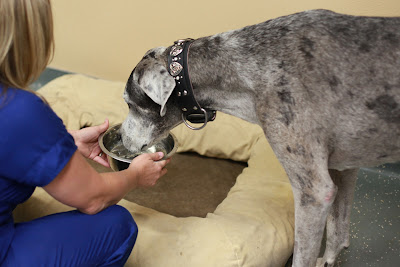It is starting to get
hot here in Arizona, so what does that mean for your family dog?
Even tough the
weather right now is comfortable for us, our dog may not be able to tolerate
that hike you want to take him on. Dog’s cannot sweat and have to pant to cool
themselves. If they are unable to cool themselves, they can become
hyperthermic or develop heat stroke. This can lead to sever organ damage and
even death.
Dogs with short noses
(like Pugs) and overweight pets are more susceptible to over heating.
Do not walk dogs on
hot days. Even in the coolest part of the day it can be too hot for your dog
and if you are taking him/her out, consider wetting down their hair coat first.
Watch out for the
water coming out of the water hose when you go to spray down your dog. You can
cause serious burns from the scalding hot water.
Do NOT leave pets in
parked cars, even with the windows cracked. Two minutes is too long, and
leaving them in the car is often fatal. Be careful in our heat!
Things to consider for your dog during these next several “hot” months:
Things to consider for your dog during these next several “hot” months:
- Have a shady spot for them.
- Have cool water for them at all times.
- Supplement those extra hot days with some ice in their water bowl.
- You may even want to spray their area down with water from time to time to help keep them a few degrees cooler.







